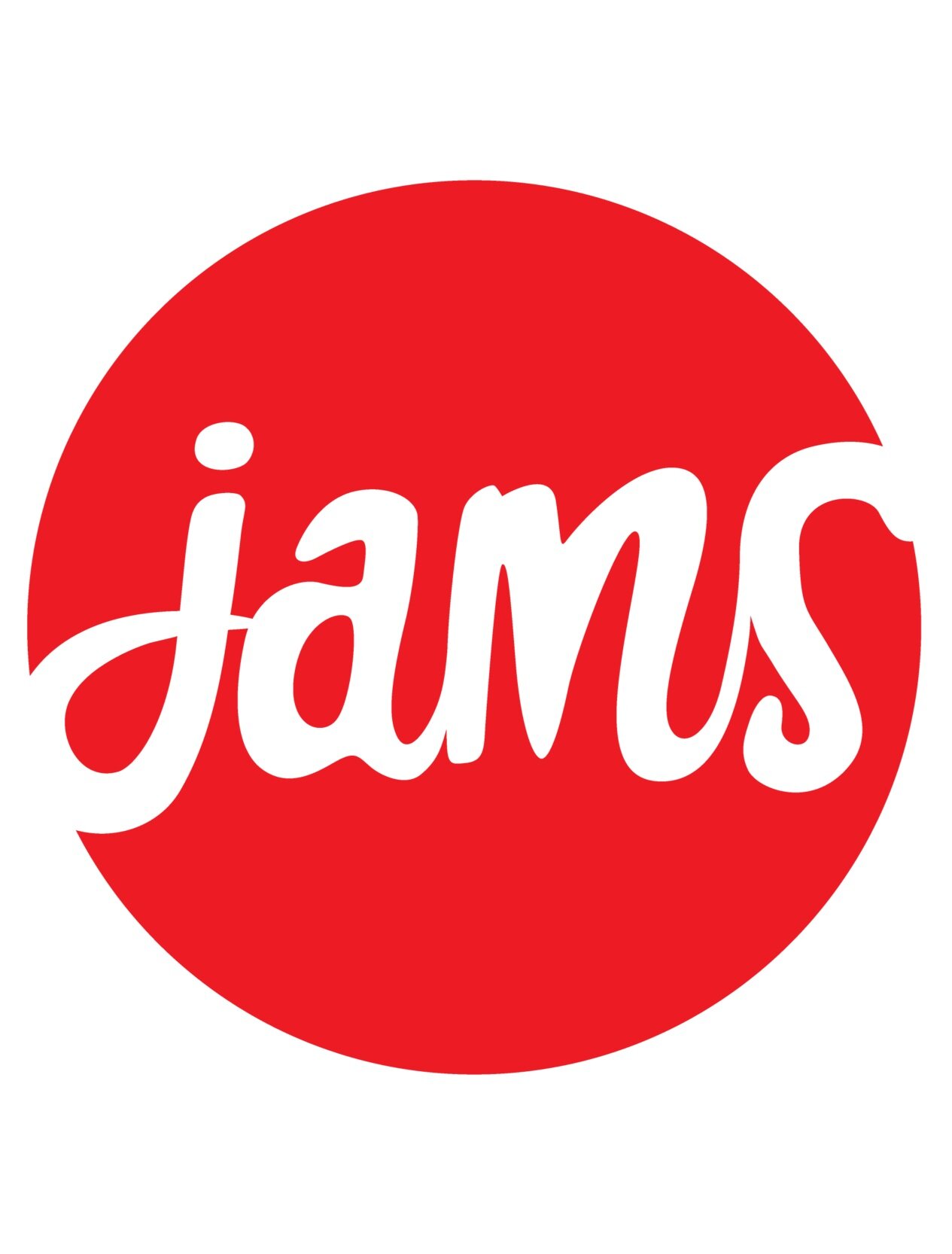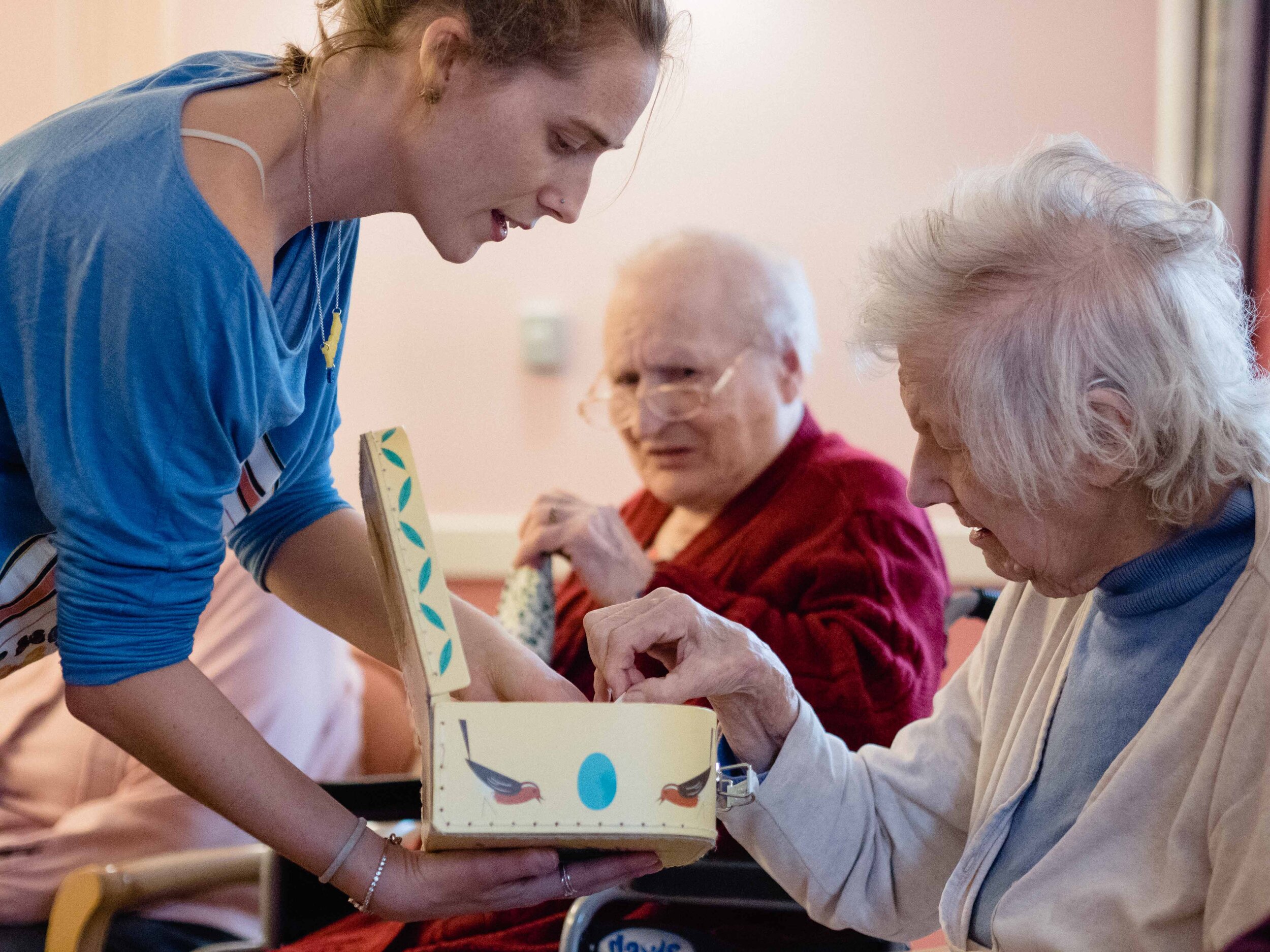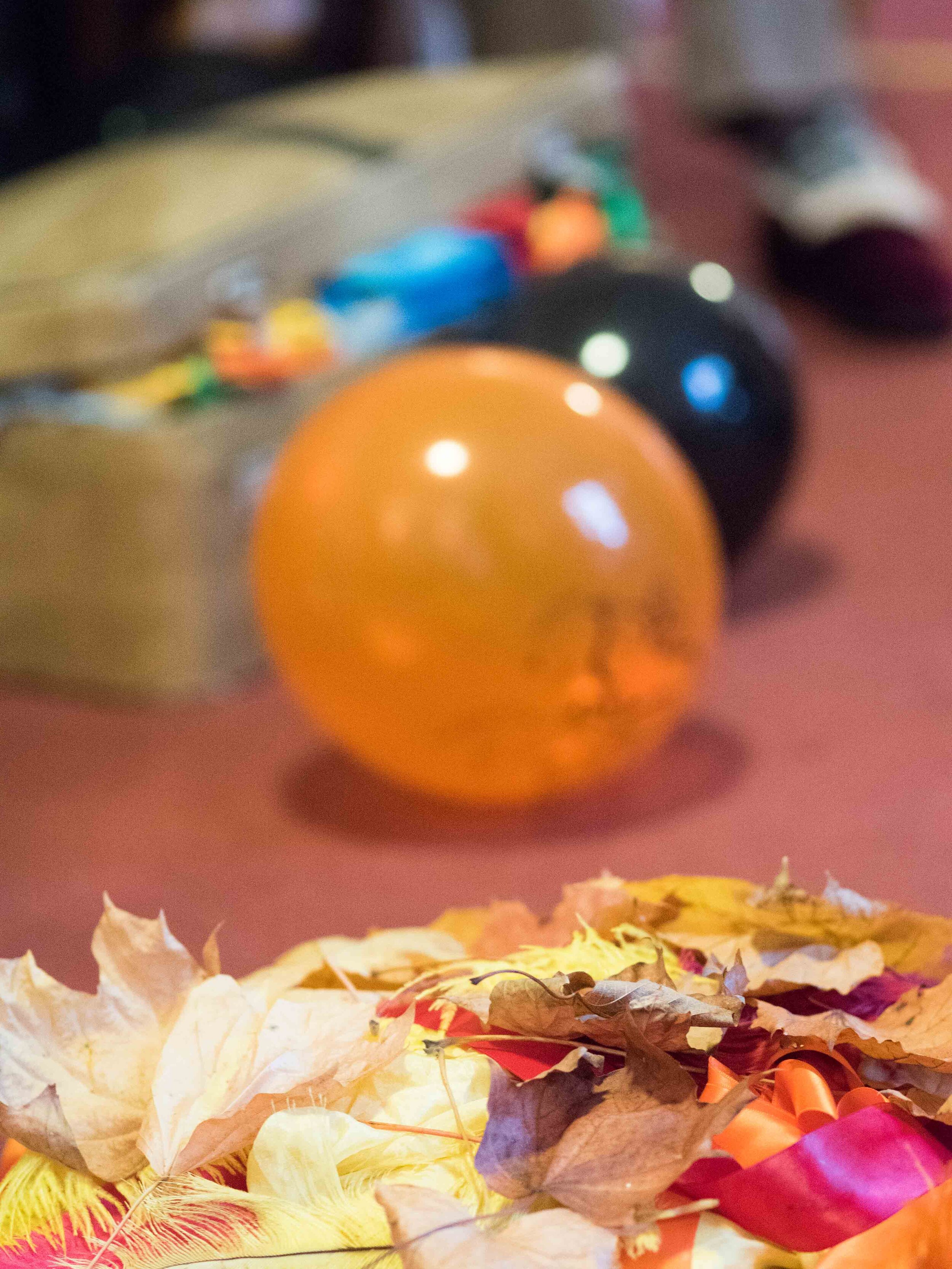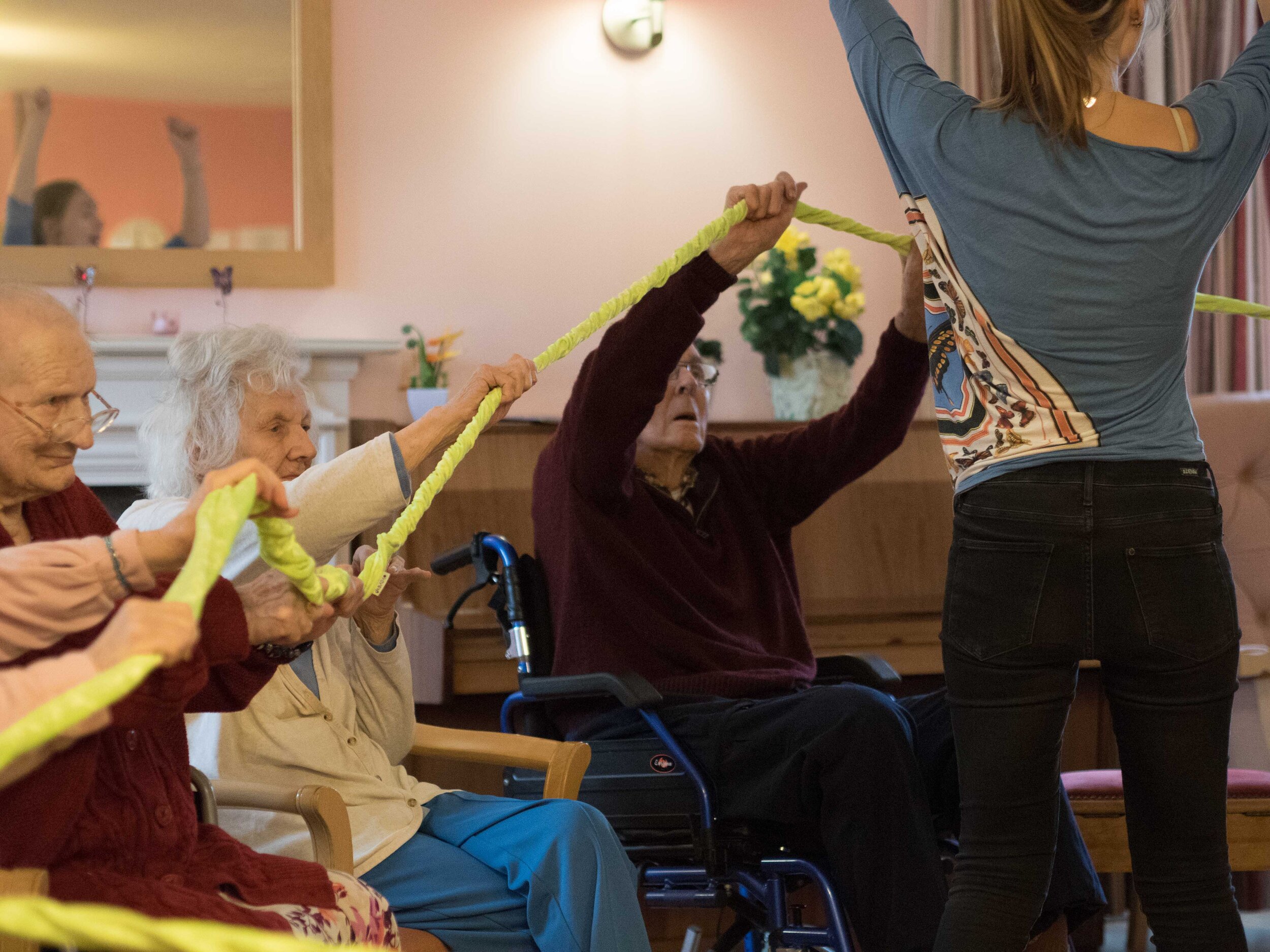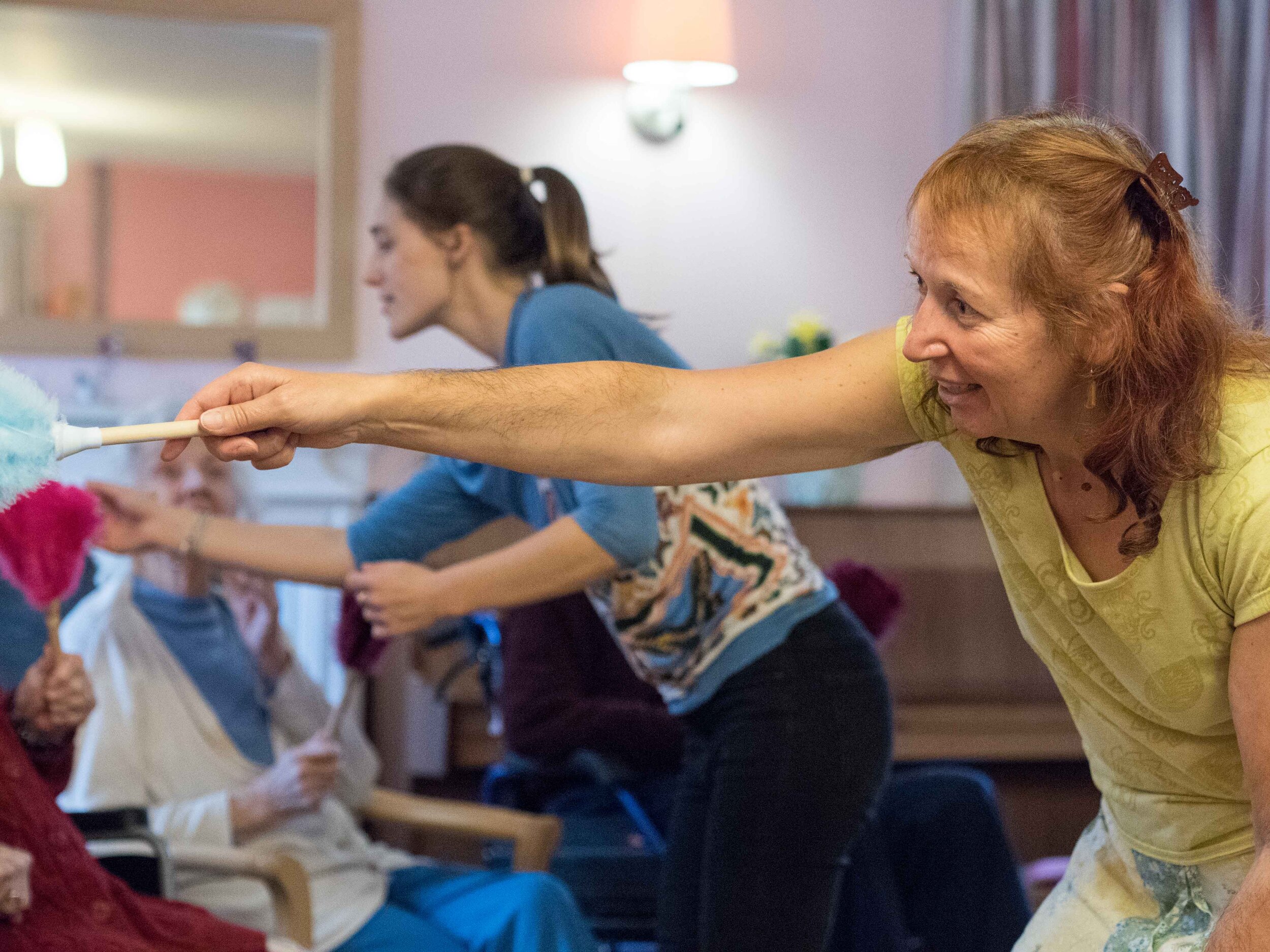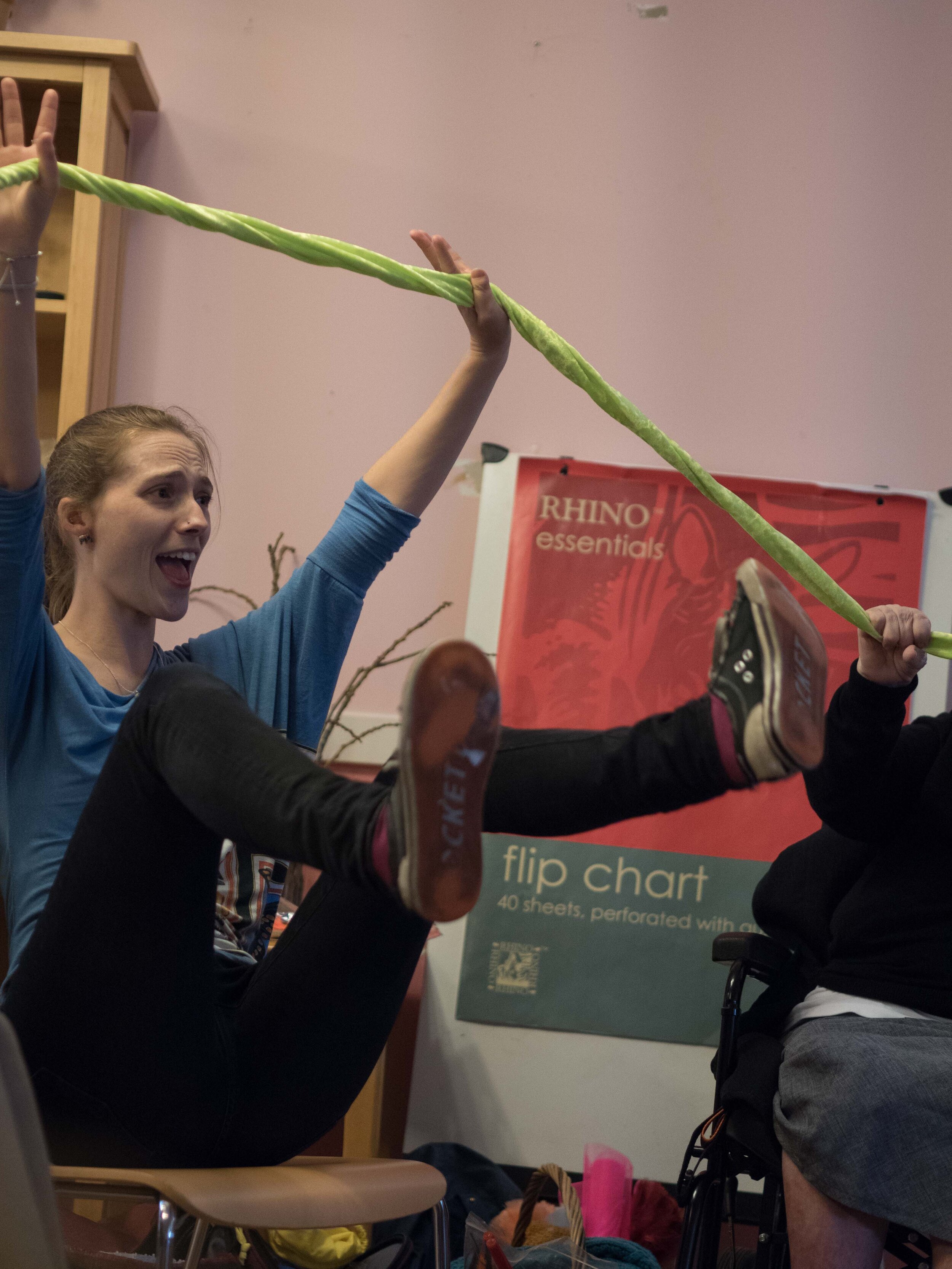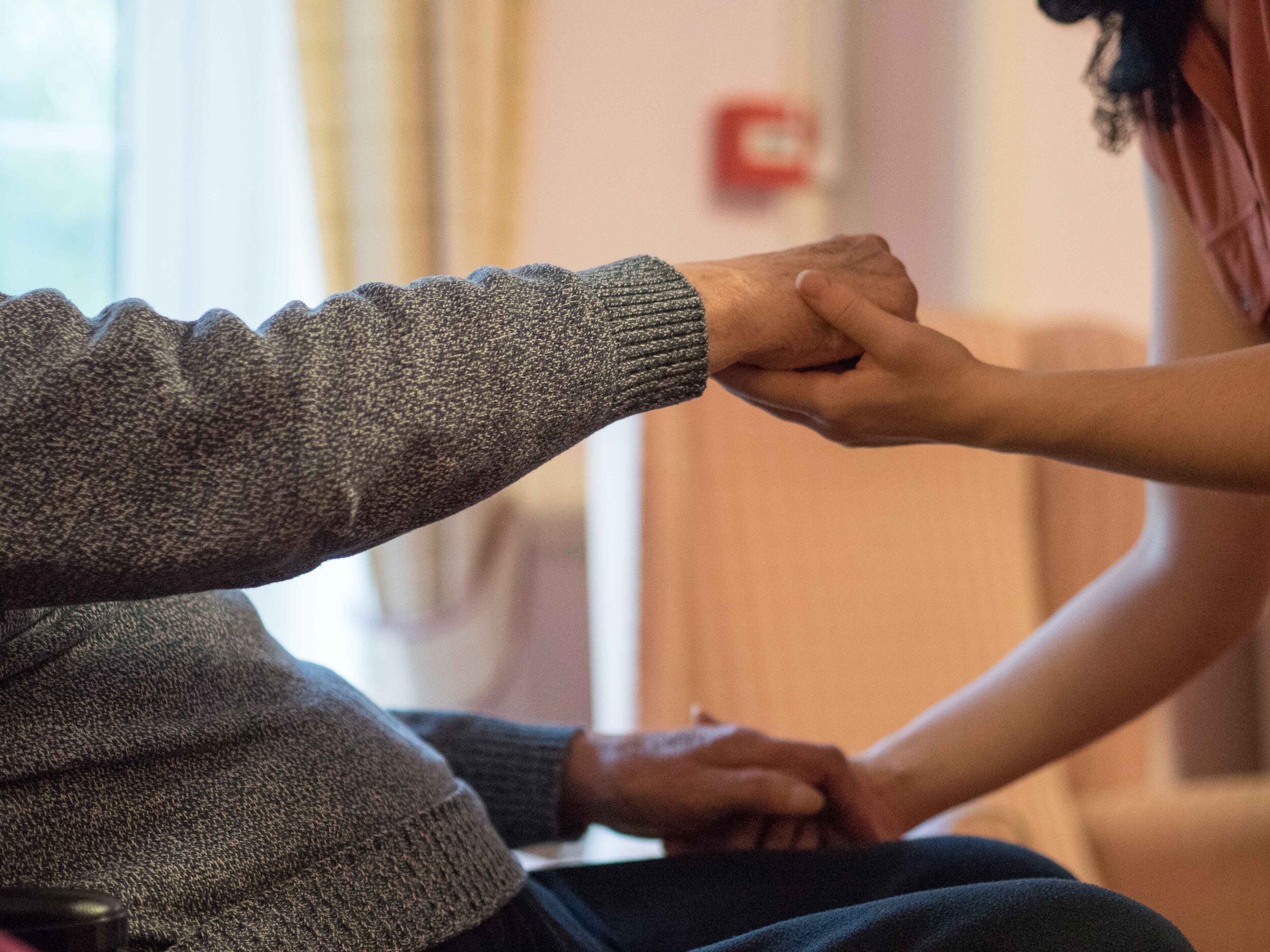Dance & Movement Therapy
JAMS are delighted to be offering Dance Movement Therapy for those living with dementia across our Norfolk care Homes
Dance Movement Therapy (DMT) is a relational process in which client(s) and therapist use body movement and dance as an instrument of communication. These sessions are facilitated by JAMS’ Rosa Kentwood, a Registered Dance Movement Therapist.
DMT supports the regulation of mood, acts as sensory stimulation and allows people to be physically active in a safe environment. It can also help ease other associated difficulties commonly associated with dementia such as fear, anxiety and loneliness.
6 benefits for those living with dementia:
Improvement in overall wellbeing
At the start of each session, the therapist will assess a resident’s behaviours and movement patterns; both of which give insight into how a person may be thinking or feeling on that day. This then leads to a warm-up that responds to the mood and wellbeing of the individual and will inform the rest of the session.
Reduce anxiety and agitation
DMT keeps people engaged, even when they are not speaking. It does not rely on verbal communication so residents feel no pressure to speak and recall forgotten words. They can relax and find therapeutic benefits in a new way. Someone who feels anxious or frustrated, for example, may use quick and strong movements to the music, which can result in the easing of their agitation.
Improves quality of life
DMT can be transformative. Often a resident who starts the sessions withdrawn will gradually bring their attention up and out into the room. For example, a tired and lethargic gentleman starts to tap his fingers and toes and all of a sudden everyone in the room is inspired by his movement and become engaged and they start to express themselves through movement. It brings residents, staff and visiting family together; to move and feel joy.
Helps residents express themselves
DMT allows those living with Dementia to move as a means to communication. When we use props such as feathers, silk scarves or giant scrunchies in a therapy session it provides a new way to move and connect with others and can also support those with limited mobility. A therapist will use specialist movement techniques such as mirroring or shadowing a person’s movement to validate, empathise with, and empower that person’s expressive movement.
Helps support memory recall
A person living with dementia often experiences difficulties with memory recall. DMT supports recollection, creating interactions that are familiar and feel safe. This can be through cultural movement or music and taps into the interests of those taking part. If a memory is triggered a therapist has the skills to support participants and this, in turn, supports their ongoing care.
Supports residents physical wellbeing
DMT supports the ageing body in a sensitive and achievable way through the use of music, rhythm and stamina. Movement can help with balance and dexterity and can help in the prevention of falls.
Get in touch to book and to find out more or to discuss your requirements.
“JAMS sessions make me feel young again.”
Click here to see our Summer Newsletter
